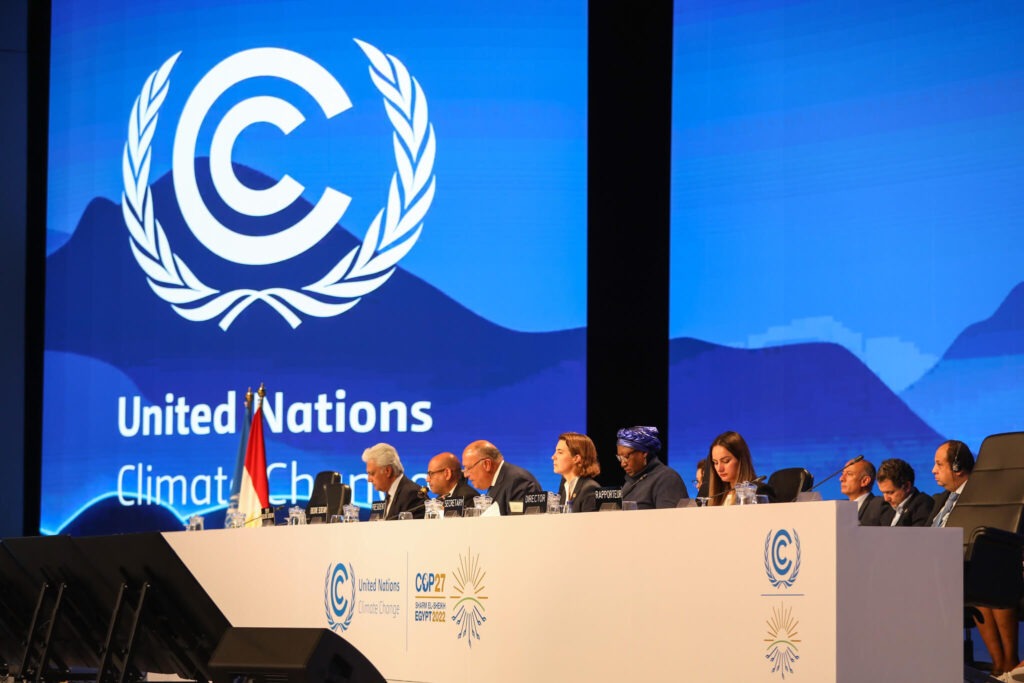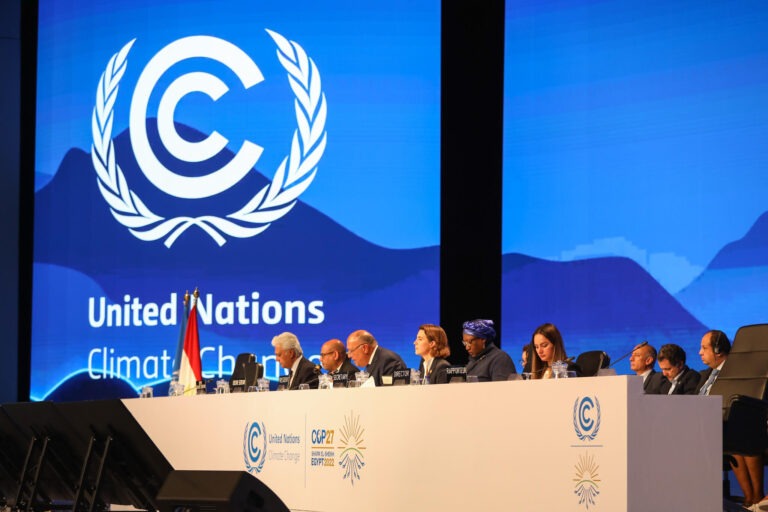At the United Nations Climate Change Summit held in Egypt in November, the world’s most developed countries were forced to establish a completely new fund that will provide compensation for damage incurred and remedy the consequences of climate change, as suffered mostly by developing countries – i.e. those countries that have historically contributed to climate change the least.
There has been talk of such a fund for a full thirty years. Yet, until now, for poor countries – broadly those that have been victims of colonisation – it has been little more than a dream. Instead of reparations, they received the crumbs that fell from the tables of other funds, which themselves saw only intermittent investment.
In the wake of an escalation of floods and droughts across the planet, as rivers dried up and deluges spread, with the increasing frequency of wildfires plaguing tundra and forests alike – and, after a year in which a third of Pakistan’s population, including half of its women and children, fell victim to devastating floods that served as a warning of the fate that could await other countries of the Global South – one might assume that developed countries took pity on those parts of the planet from whose gold, oil and lifeblood they have grown fat.
Alas, were it possible for an ounce of empathy to besmirch the world of international politics, we would not now be on the precipice of hell’s cauldron.
That is not to say that there are no progressive voices or ideas – they are certainly evident among scientists, environmental activists, representatives of international organisations, and even among a few rare national administrations – rather that their promotion and implementation is dictated by the interests of military and economic power and the business of domination.
Concretely, in terms of relations between the West and China, in which the latter benefits from supporting developing countries (formally, China will be considered a developing country for another year), which it seeks to use (if the fund takes off) to economically weaken its international trade and geopolitical competitors.
After two weeks of gruelling negotiations, the developed world gave in to pressure exerted on it by a united diplomatic bloc of developing countries and pledged to invest in their recovery. Media reports paint a picture of a chaotic and intolerant atmosphere at the summit, punctuated by tough talk and heightened tensions, that threatened to unravel the whole process.
Not that the successes of previous climate change summits have resulted in the kind of change in economic trends that the planet needs. Nevertheless, the COP summits remain one of the most important, and perhaps only, chances for humanity – divided, such as it is, into nation states – to cooperate and ensure the survival of the living world. Even if it means pretending that humans are right to think of themselves as rational beings.
According to media reports, the turnaround took place during the final round of negotiations, which lasted a full two days and two nights. Until the morning of 18 November, the USA, the EU and Great Britain, representing historically the biggest contributors to global warming, resisted the establishment of a special reparations fund. Their argument was that it is more practicable to draw upon existing funds in the event of a natural disaster. That Friday morning, the EU changed tack and conceded to the establishment of a funding facility on the condition that China also contributes to it.
It is worth remembering that China currently emits twice as much CO2 into the atmosphere as the US and that, in cumulative terms, its contribution to climate change is in close second place among the national states. Even so, according to World Bank calculations, China will formally continue to be a developing country until 2023 and, in negotiations on a loss and damage fund, will continue to stand with other developing nations.
As the Guardian reports, the fact that the countries of the poorer South did not initially agree to the EU’s proposal came as something of a surprise for the representatives of Western countries. Though we view these events from the sidelines and draw our conclusions on the basis of incomplete information, it does seem that, by resisting attempts to divide the bloc and by continuing to give China the diplomatic clout of a country that represents the majority of the world and fights for historical climate justice, the Global South has pulled of something of a geopolitical coup. In short, the countries of the Global South must be well aware that without China’s support, the West would have blown them out of the now rising floodwaters and left them high and dry as it has always done. A things stand, however, the choice was not one between a smaller facility funded by the West and a larger one funded by the West and China, it was between something and nothing at all.
Moreover, at least in terms of how it has been commented on in the West, this renewal of the developing world’s old hostility towards the colonial powers, now freshly reawakened by animosity due to inadequate responses to the Covid pandemic – particularly what is, broadly speaking, perceived to be an exclusivist and profit-orientated approach to the distribution of vaccines and their patents – blindsided EU representatives.
The Global South leapt at the opportunity to take advantage of what appeared to be a geopolitical power equilibrium. Yet, while the discussion focused on loss and damage, the Titanic of sustainable life on our planet continued to sink. Urgent decisions on restricting fossil fuel use and extractive industries were not made.
We are witnesses of tragedies on the brink of a climate catastrophe. If we understand tragedy as an event at which the hero of a story arrives while trying to avoid it, we can understand the Global South as tragic heroes in the traditional sense of that term. While they have successfully taken advantage of a moment in which the balance of power tilted in their favour, it is very possible that they have contributed in their own way to the return of a unipolar world that will be at its most callous to the poorest societies. That, by seeking justice for those who nearly destroyed them, they have given their last hope the strength to finish the job.
Translation from Serbian: Ivan Kovanović
This article was ORIGINALLY PUBLISHED in Serbian on November 11, 2022.


